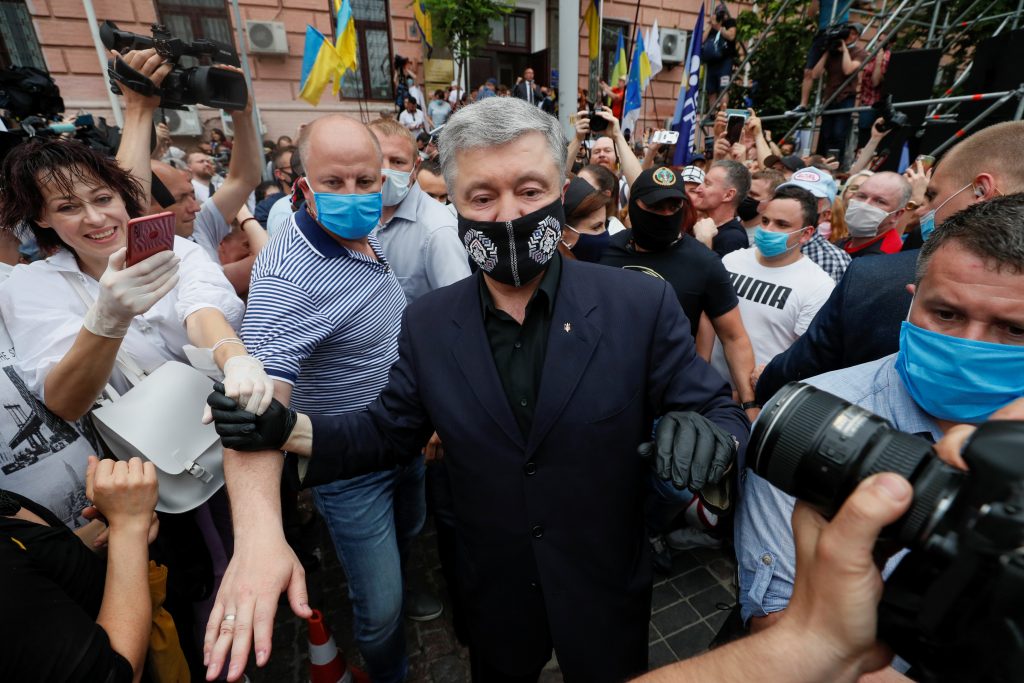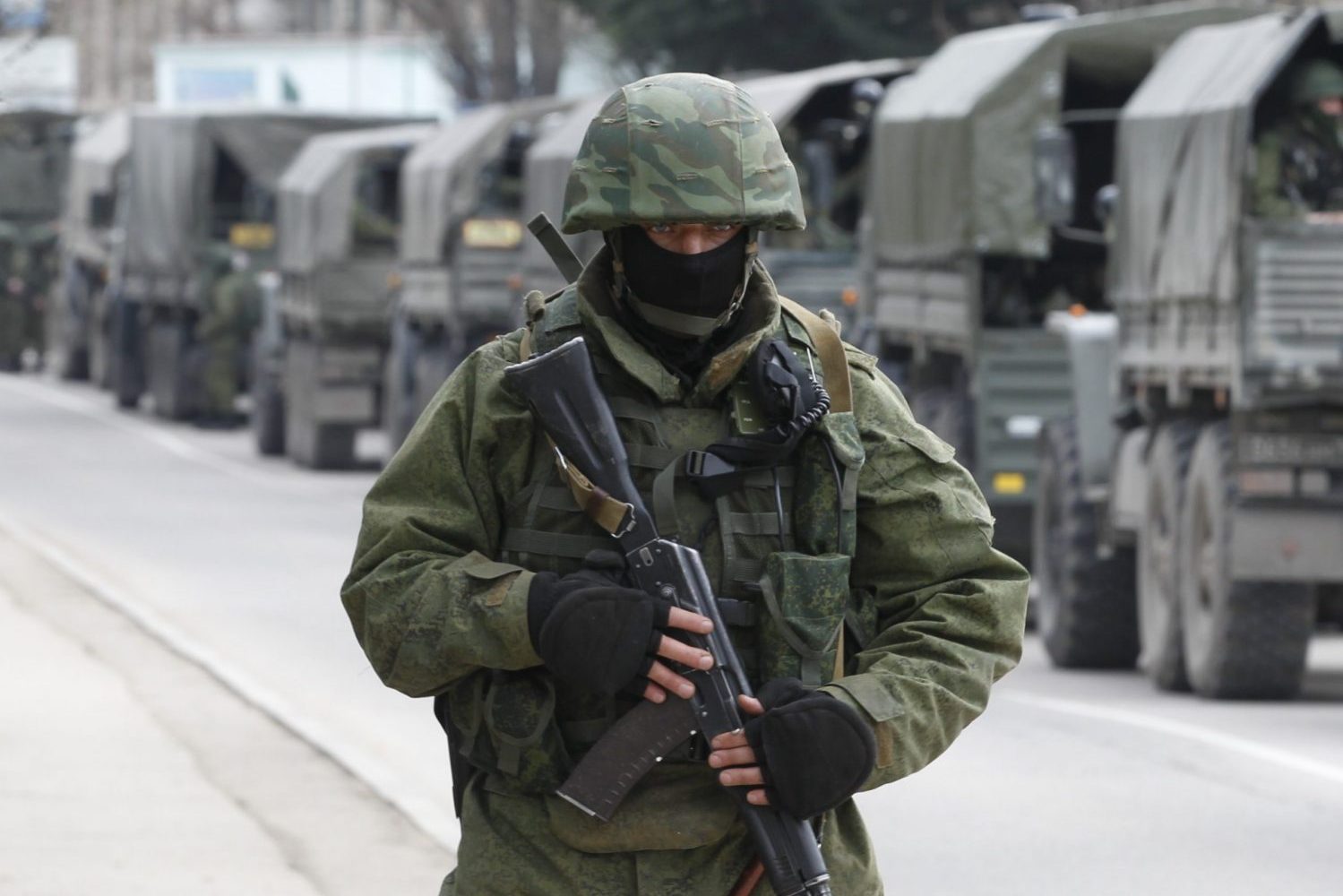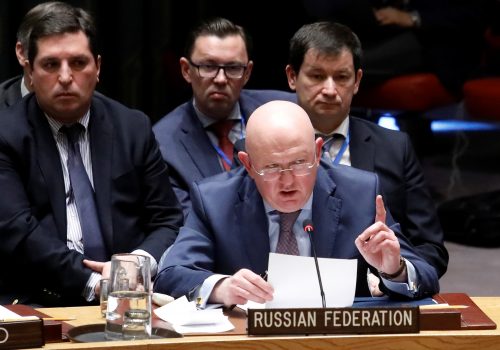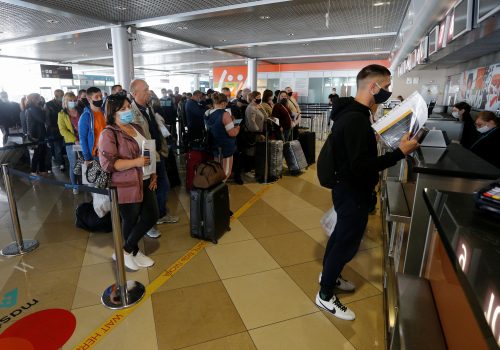Former Ukrainian President Petro Poroshenko appeared in court on June 18 for a pretrial hearing on charges related to alleged abuse of office during his presidency. This is one of around twenty cases involving the ex-president that are currently being pursued in what critics have labeled a clear-cut case of political persecution. If convicted, Poroshenko could face prison. However, some observers believe it is Ukrainian democracy rather than the country’s ex-leader that is now on trial.
The campaign to prosecute Poroshenko is closely linked to his successor, President Zelenskyy, who has made little secret of his antipathy towards the man he replaced last year. Zelenskyy campaigned for the presidency as an anti-establishment figure and promised to bring corrupt high-ranking officials to justice. Poroshenko, who remains Zelenskyy’s closest political rival, is believed to be the current president’s number one target.
Talk of prosecuting Poroshenko began soon after Zelenskyy took office. The first prosecutor general to be appointed by Zelenskyy, Ruslan Ryaboshapka, blamed his March 2020 dismissal on his refusal to sign off on charges against Poroshenko that he dismissed as “legal trash”. Ryaboshapka’s replacement does not appear to share these concerns.
Attempts to prosecute Poroshenko have caused considerable public disquiet within Ukraine and alarmed the country’s international partners. Ahead of the June 18 court hearing, a number of Western embassies voiced their concerns publicly. The US Embassy posted a statement on Facebook warning that “the justice system should not be used for the purpose of settling political scores”, while the Canadian Embassy called for “a justice system free of political interference.” Meanwhile, Donald Tusk, the former president of the European Council and current president of the European People’s Party (EPP), said the EPP was “very concerned by political cases against former President Poroshenko. The charges should not resemble politically motivated persecution, nor be politically motivated against select political opponents.”
Inevitably, efforts to convict Poroshenko have drawn comparisons with the 2011 trial and imprisonment of Ukrainian opposition leader Yulia Tymoshenko. The decision to jail Tymoshenko served as a major milestone in President Yanukovych’s departure from democratic norms and set the country on a path towards revolution. This grim recent history makes the pursuit of Poroshenko appear particularly questionable, while Ukraine’s precarious geopolitical predicament also raises red flags. With domestic stability and continued Western backing both essential for Ukraine in its struggle against ongoing Russian aggression, the country can ill afford to aggravate internal divisions or risk a rift with its international partners.
What could the prosecution of ex-president Petro Poroshenko mean for Ukraine?
Melinda Haring, Deputy Director, Eurasia Center, Atlantic Council: The charges against Poroshenko look very thin. If the authorities prosecute former President Poroshenko in what increasing looks like political score setting, Zelenskyy will go down in the history books as just another lackluster post-Soviet president who couldn’t deliver on his many promises to make Ukraine functional. Ukraine has a major image problem, and prosecuting former presidents is an unusual tactic to persuade foreign investors to put money in a country with mickey mouse courts. Plus, who is to say that his successor won’t do the same to Zelenskyy?
Steven Pifer, Former US Ambassador to Ukraine: It is generally a bad idea for countries to prosecute former presidents unless there is compelling evidence of significant wrong-doing. There is compelling evidence that Viktor Yanukovych did grave damage to the Ukrainian state. That is not the case with Petro Poroshenko. Going after Poroshenko puts at risk one of Kyiv’s key assets, namely Ukraine’s reputation as a democratic state. Does President Zelenskyy want his government to be known for prosecuting the losing presidential candidate on dubious charges? That already happened once in Ukraine, when Yanukovych imprisoned Yulia Tymoshenko following a sham trial. Not only does the Poroshenko case prompt questions about the commitment of Zelenskyy and his prosecutor general to democratic norms, it is also dumb politics. Zelensky’s Servant of the People party won a majority of seats in the parliament but has visibly splintered in recent months. Zelenskyy needed votes from Poroshenko’s European Solidarity party to pass key legislation, including the banking law that was required to meet the IMF’s preconditions for a standby agreement. He may need those votes again in the future.
Stay updated
As the world watches the Russian invasion of Ukraine unfold, UkraineAlert delivers the best Atlantic Council expert insight and analysis on Ukraine twice a week directly to your inbox.
Adrian Karatnycky, Senior Fellow, Eurasia Center, Atlantic Council: Ukraine’s authorities have opened twenty-four criminal cases against former President Petro Poroshenko. Most of these cases are frivolous and preposterous and represent selective justice and political persecution. The charges include “usurping power” because he named two First Deputy Heads of the Foreign Intelligence Service (and not one!), “treason” because he “put at risk” Ukrainian sailors when he ordered Ukrainian naval vessels to travel in international and Ukrainian territorial waters, and “inflaming religious tensions,” because his government worked successfully with the Ecumenical Patriarch of Constantinople to achieve the canonical recognition by world Orthodoxy of the Ukrainian Orthodox Church. These criminal cases discredit President Zelenskyy and his Prosecutor General as they represent selective prosecution and gross injustice. It is notable that in all the trumped-up criminal cases Poroshenko faces, there is not a single case focused on corruption and personal enrichment, which was the main accusation leveled at Poroshenko by Zelenskyy when he was a candidate for the presidency. Of equal significance is the current wave of criminal cases against pro-democracy activists who resisted state violence during Ukraine’s Euromaidan protests and the Putin-financed “Russian spring” that followed. Polls show there is a public appetite for prosecutions of past and current officials. President Zelenskyy is playing to these expectations. In doing so, he is playing with fire. He and his Prosecutor General must rigorously uphold the law and reverse course. They are dangerously close to repeating the mistakes of past Ukrainian leaders whose tenure in office ended in ignominy and worse.
Alyona Getmanchuk, Director, New Europe Center: The prosecution of former president Petro Poroshenko could become a key factor in Ukraine’s relations with the West. It would be a diplomatic disaster if Poroshenko’s prosecution comes to dominate dialog with Ukraine’s key partners, and could potentially undermine cooperation. This would have major geopolitical implications. The more Ukraine is alienated from the Western world, the more space there will be for other influences to emerge. In today’s reality, these influences are not limited to Russia but also include China, which has growing appetite for a greater presence in the region. In the short-term, prosecuting Poroshenko could help Zelenskyy to consolidate his electoral base. However, in the long run it will weaken his presidency by depriving him of support from the politically engaged segment of Ukrainian society, while also isolating him from important international partners. Zelenskyy currently has two options. He can either enter history as the Ukrainian president who finally established rule of law in the country, or he can become one more Ukrainian leader who became obsessed with the persecution of his political opponents.
Roman Waschuk, Former Canadian Ambassador to Ukraine: The raft of prosecutions targeting former president Petro Poroshenko reflect an unfortunate insecurity felt by current President Volodymyr Zelenskyy despite last year’s crushing election victory and his continuing opinion poll dominance. This insecurity has been cleverly torqued and exploited by Zelenskyy’s oligarchic electoral enabler Ihor Kolomoiskiy and Yanukovych-era legal affairs chief Andriy Portnov in order to settle old scores. Russia’s divide-and-conquer agenda isn’t doing too badly out of this, either. I’ve been struck by Zelenskyy’s insistence that Poroshenko was badmouthing him to all of Ukraine’s foreign partners as “an enemy of Ukraine”. Having attended lots of meetings in and around Bankova during the transition period last spring, I never heard that slur being thrown around by Poroshenko or his closest advisors in discussions with diplomats. Inexperience, naivete, lack of governing capacity – all of these arguments were trotted out for us. Our response then was to focus on democratic transition and respect the will of the electorate.
Eurasia Center events

Brian Bonner, Chief Editor, Kyiv Post: Any prosecution must meet two standards at least: the crime must be serious and the evidence must be convincing. Poroshenko is suspected of a lot of serious crimes, including financial ones and obstruction of justice, during his time in office. But the charges he’s now facing of abuse of office over an illegal appointment invite ridicule and well-founded accusations of political persecution by President Volodymyr Zelenskyy’s hand-picked prosecutor. They’re spinning their wheels, trying to slap together any case, rather than undertake credible and complex investigations into whether high-level criminality took place during Poroshenko’s tenure.
Volodymyr Dubovyk, Associate Professor, Odesa Mechnikov National University: The prosecution of Poroshenko could have negative repercussions for Ukraine both domestically and internationally. In the domestic political context, this could be seen as a petty, cheap shot at Zelenskyy’s predecessor and current political opponent, as well as an attack on the Poroshenko electorate. It has the potential to increase political volatility and lead to mutual recriminations at a time when the country needs unity. Following on from the sham trials and imprisonment of Yulia Tymoshenko and Yuriy Lutsenko during the Yanukovych presidency, a consensus emerged that such political prosecutions were wrong and should never happen again. However, we are now looking at a potential repeat. This habit of each new Ukrainian administration to prosecute its predecessors is not healthy. Internationally, the charges against Poroshenko are widely perceived as a case of politically motivated and selective justice. It is true that many of Ukraine’s international partners had grievances with Poroshenko by the time he left office. There has also always been strong international support for legitimate investigations into corruption and other abuses of office, but the current charges against Poroshenko do not fall into this category. Instead, the prosecution of the former president highlights how unreformed and politicized the Ukrainian judiciary remains.
Michael Bociurkiw, Global Affairs Analyst: The need to settle political scores must be in the DNA of Ukrainian politicians. Moreover, with so many criminals from past regimes yet to face justice, it boggles the mind that the administration of President Volodymyr Zelenskyy would go after his immediate predecessor. Zelenskyy already has more than enough on his plate at the moment. He must contain the coronavirus pandemic, resuscitate the moribund Ukrainian economy, implement badly-needed reforms, and achieve a durable ceasefire agreement with Russia. My biggest fear is that this type of behavior will create the impression that Ukraine is a banana republic with a legal system that can be manipulated by those in power to punish their opponents. This is the last thing the nation can afford right now as it tries to get back on its feet after months of lockdown. With a political dust-up playing out in Kyiv and with national unity eroding, Russian President Vladimir Putin must be looking on gleefully.
Peter Dickinson is the Editor of the Atlantic Council’s UkraineAlert Blog.
Further reading
The views expressed in UkraineAlert are solely those of the authors and do not necessarily reflect the views of the Atlantic Council, its staff, or its supporters.

The Eurasia Center’s mission is to enhance transatlantic cooperation in promoting stability, democratic values and prosperity in Eurasia, from Eastern Europe and Turkey in the West to the Caucasus, Russia and Central Asia in the East.
Follow us on social media
and support our work
Image: Former Ukrainian President Petro Poroshenko greets supporters after leaving court in Kyiv on June 18. REUTERS/Gleb Garanich




